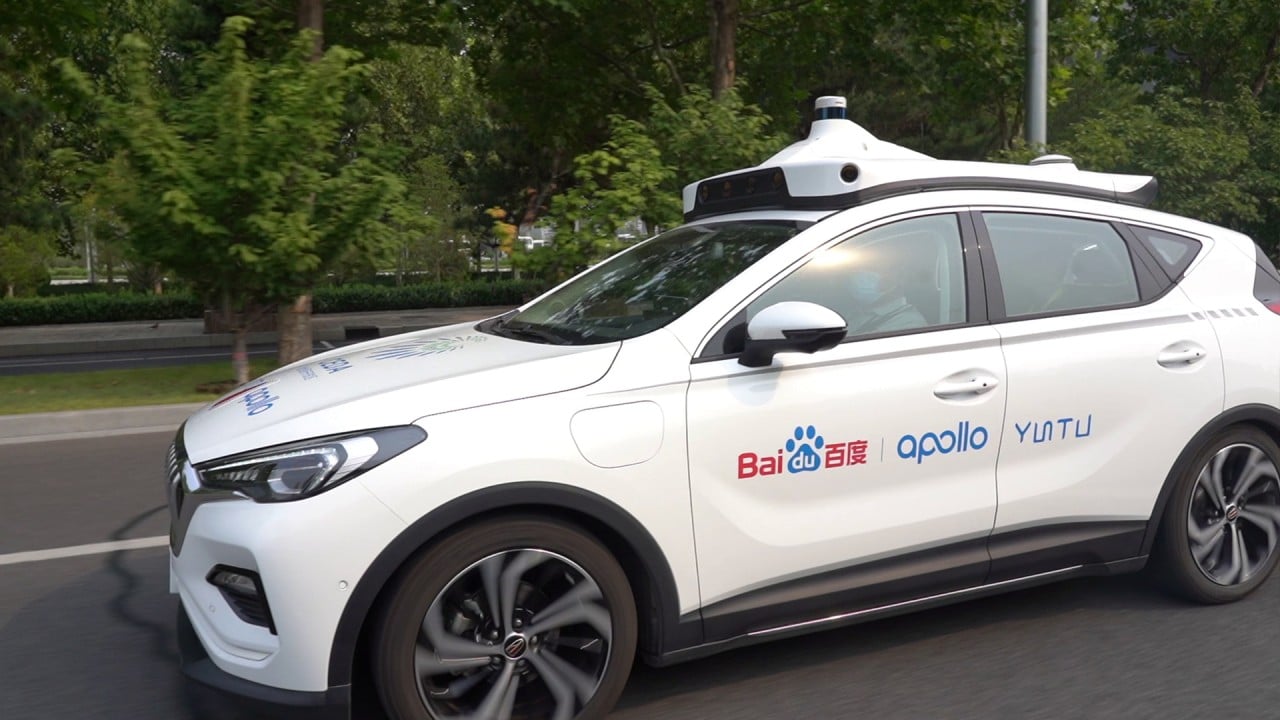
China’s Baidu unveils autonomous driving ‘robot truck’ Xingtu
- Xingtu will have a long-distance sensing capability of more than 1 kilometre and will achieve L3 autonomous driving on high-speed freight routes, firm says
- Baidu’s Apollo platform ‘has the potential to create more next-generation vehicles with self-driving capabilities’: analyst
A mass production model launched by Baidu subsidiary DeepWay, Xingtu will have a long-distance sensing capability of more than 1 kilometre and will achieve Level 3 (L3) autonomous driving on high-speed freight routes. L3 means drivers can safely take their attention off the road in certain traffic conditions, but the technology still requires human intervention.

00:33
Baidu’s self-driving technology Apollo
“The Apollo platform has the potential to create more next-generation vehicles with self-driving capabilities,” said Cao Hua, a partner at private-equity firm Unity Asset Management. “It remains to be seen whether products like Xingtu trucks will be well received by clients in the near future.”

Equipped with 10 on-board cameras, five millimetre wave radars and three infrared detectors, along with advanced algorithms, Xingtu can achieve end-to-end autonomous driving – from perception to planning – very quickly, Baidu said. With a full load of 49 tonnes, Xingtu’s 450 kilowatt-hour battery pack will go as far as 300 kilometres (186 miles) on a single charge, it added.
Baidu did not, however, say when production would begin and how much the vehicle would be sold for.
The company said that Xingtu, which means creating a path towards stardom status in Chinese, could achieve L4 capabilities on the same high-speed freight routes between 2024 and 2026. Vehicles powered by L4 technology do not require human interaction in most circumstances.

04:07
China’s automated driving technology speeds ahead with research by search engine giant Baidu
Autonomous driving has the potential to make long-haul transport cheaper and more efficient. For example, US self-driving truck firm TuSimple said this year that it had customer reservations for more than 5,700 trucks.

